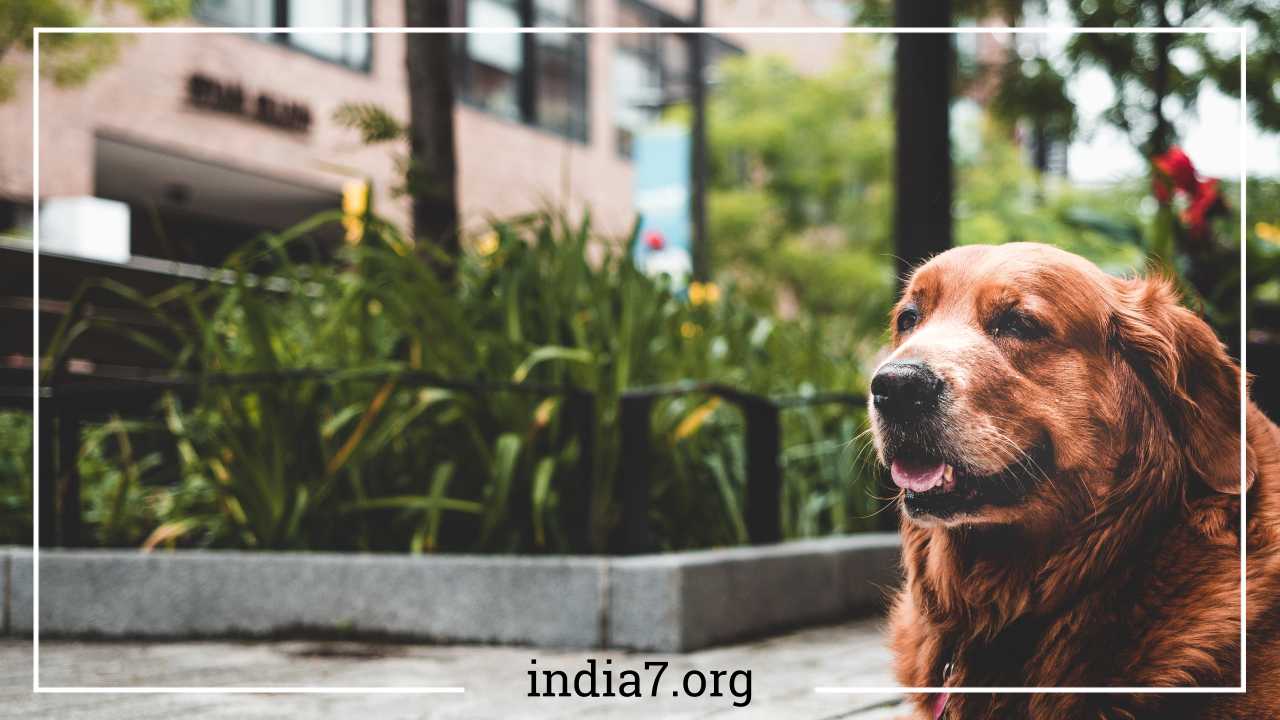Adopting an Older Golden Retriever: Benefits, Considerations, and Care Tips

Older Golden Retriever
Golden Retrievers, with their luscious golden coats and friendly demeanor, are one of the most beloved dog breeds in the world. They are known for their intelligence, loyalty, and gentle nature, making them fantastic companions for families and individuals alike.
However, while many people dream of bringing a Golden Retriever into their lives, not everyone is prepared for the challenges and responsibilities that come with raising a puppy. This is where the option of adopting an older Golden Retriever becomes particularly appealing.
In this comprehensive guide, we will explore the many aspects of adopting an older Golden Retriever. From the advantages and considerations of welcoming an older dog into your home to the step-by-step process of acclimating them to their new environment, we will provide you with the knowledge and insights you need to make an informed decision and ensure a smooth transition for your new furry family member.
Advantages of Adopting an Older Golden Retriever
- Maturity and Stability: One of the primary benefits of adopting an older Golden Retriever is their maturity. Unlike puppies, older dogs have already passed through the demanding stages of adolescence and have settled into their adult personalities. This means they are typically more stable in terms of temperament and behavior.
- Independence: Older Golden Retrievers are often better equipped to handle being alone for longer periods. They don’t require the constant supervision and attention that puppies demand, making them an excellent choice for individuals or families with busy schedules.
- House Training: Most older Golden Retrievers are already housebroken. They understand where and when to do their business, which can save you a lot of time and effort compared to the intensive house training required for puppies.
- Behavior Patterns: Older dogs have already developed behavior patterns, and you can easily observe their habits and preferences. This allows you to better understand their needs and tailor your care accordingly.
- Adjustment to Family Life: While there may be an initial adjustment period, older Golden Retrievers often adapt quickly to their new families. They are known for their loyalty and desire to please, making them eager to become valued members of their new homes.
- Health Awareness: Unlike puppies, older dogs have fully developed bodies, and their health status is more apparent. This means you can make a more informed decision about the dog’s health and any potential medical conditions.
Reasons for Older Golden Retrievers Needing Homes
There are several reasons why older Golden Retrievers may be in need of new homes, and understanding these reasons can help you empathize with your potential new companion and his previous circumstances. Some common reasons include:
- Show Dogs: Show dogs may retire from the show circuit due to age or because they haven’t met the specific standards of the breed.
- Breeding Dogs: Male Golden Retrievers used for breeding may be retired from this role, allowing them to live a more relaxed life.
- Retired Mothers: Female Golden Retrievers used for breeding often retire after a certain number of litters or at a certain age.
- Special Circumstances: Sometimes, breeders or owners may face personal or financial challenges that necessitate finding a new home for their Golden Retriever.
Regardless of the reason, it’s important to approach the adoption process with compassion and a willingness to provide a loving and stable home for an older dog in need.
Preparing for the Adoption
Before you embark on the journey of adopting an older Golden Retriever, there are several essential steps you should take to ensure a successful transition for both you and your new furry friend.
1. Gather Information:
Knowledge is power when it comes to adopting a dog, especially an older one. Research the breed, read books, watch videos, and seek advice from experienced Golden Retriever owners. Understanding the breed’s characteristics, needs, and potential challenges will help you make informed decisions.
2. Assess Compatibility:
Consider whether the temperament of the older Golden Retriever aligns with your family’s lifestyle. Golden Retrievers are typically known for their friendly and affectionate nature, but each dog has its unique personality. Some may be more active, while others may be calmer. Assess whether this temperament is compatible with your household.
3. Prepare Your Home:
Before bringing your new companion home, make sure your living space is safe and welcoming. Remove hazards, ensure there are no toxic substances accessible to the dog, and create a designated space for them to sleep, eat, and relax.
4. Discuss with Family Members:
If you have a family, involve everyone in the decision-making process. It’s crucial that all family members are on board with adopting an older Golden Retriever and are willing to contribute to the care and attention the dog will need.
5. Meet the Dog:
Whenever possible, arrange to meet the older Golden Retriever before making a final decision. This will allow you to assess the dog’s behavior and how well they interact with you and your family.
The First Days at Home
Bringing an older Golden Retriever into your home is an exciting but also a potentially challenging experience, especially for the dog. Here are some essential tips for the first days:
1. Be Patient: Understand that your new dog may be feeling anxious or confused in their new environment. Be patient and give them time to adjust.
2. Show Them Around: Introduce your dog to their new surroundings gradually. Show them where they will sleep, where they should go to the bathroom, and where their food and water bowls are located.
3. Establish Routine: Dogs thrive on routine, so try to establish a consistent daily schedule as soon as possible. This will help your dog feel secure and understand what to expect.
4. Provide Plenty of Love and Attention: Shower your new Golden Retriever with love and attention. This will help build trust and strengthen your bond.
5. Socialize Gradually: While socialization is crucial, especially if the dog hasn’t had much exposure to other people or animals, introduce new experiences and encounters slowly to avoid overwhelming your dog.
Obedience Training
Even if your older Golden Retriever has some prior obedience training, it’s a good idea to enroll them in a new obedience class. This serves several purposes:
- Refresh Training: It gives your dog an opportunity to refresh their training and reinforce their existing skills.
- Bonding: Training classes provide an excellent bonding experience for you and your dog.
- New Commands: You can introduce new commands or address specific behavioral issues if necessary.
- Consistency: It establishes a consistent approach to obedience and reinforces your role as the leader.
Remember to use positive reinforcement techniques during training, such as treats and praise, to motivate and reward your dog for good behavior.
The Importance of Patience and Reassurance
It’s essential to remember that older Golden Retrievers, like all dogs, thrive on love and attention. Be aware that older dogs may have medical issues that need extra care and attention, but this should not discourage you from adopting one. The rewards of adopting an older Golden Retriever far outweigh any potential challenges.
Building trust and a strong bond with your older dog is key to a successful relationship. Reassure them regularly, letting them know that you are their new owner and that you are delighted to have them as a member of your family. Providing a consistent and loving environment will help your older Golden Retriever feel secure and cherished.
Conclusion
Adopting an older Golden Retriever is a rewarding experience that can bring immense joy to your life and the life of your new companion. While there may be some initial adjustments and considerations, the benefits of adopting an older dog are numerous. You are providing a loving home to a dog in need while enjoying the advantages of their maturity, stability, and often already-acquired training.
Before adopting, do your research, assess compatibility, prepare your home, and involve your family in the decision. Once your older Golden Retriever is home, be patient, introduce routines, provide love and attention, and consider enrolling in obedience training classes.
Remember that older dogs have a lot of love to give, and they can quickly become cherished members of your family. The journey of adopting an older Golden Retriever is a testament to the enduring bond between humans and dogs, and it’s a decision that can bring happiness and fulfillment for years to come. So, if you’re considering adopting a Golden Retriever, don’t overlook the option of adopting an older one—they have plenty of love and companionship to offer.



